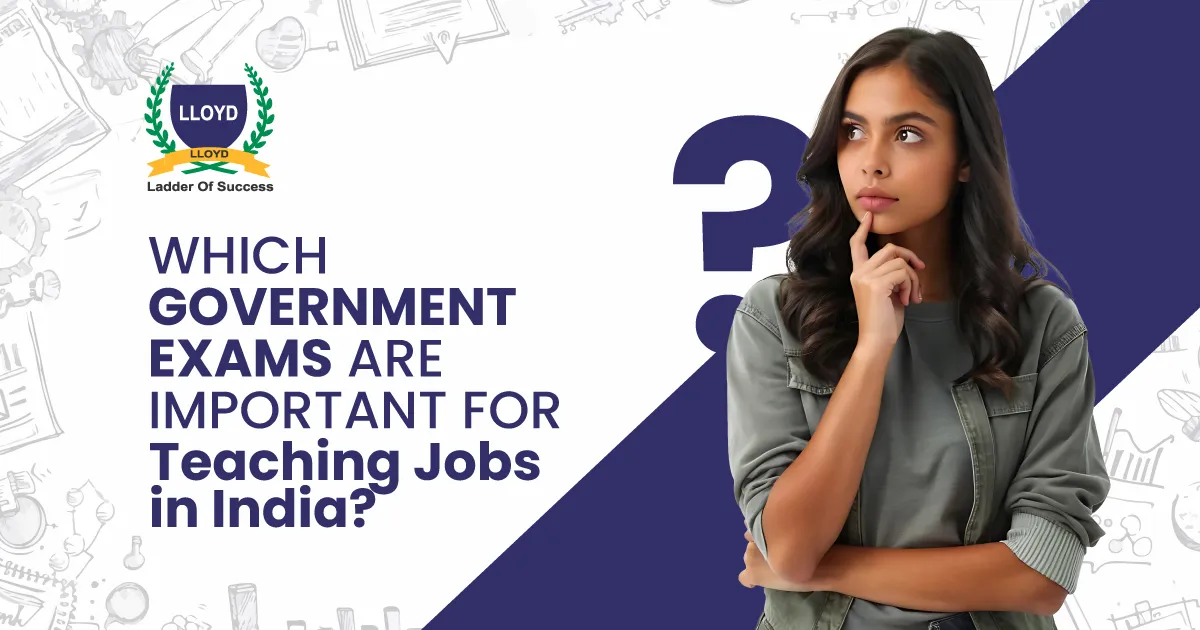
Teaching has long been one of the most respected and stable professions in India. With the rise in literacy rates, expansion of educational institutions, and government initiatives to strengthen the education sector, the demand for qualified teachers is growing significantly. Whether in rural or urban regions, the role of a teacher is pivotal in shaping the nation. As such, many graduates and professionals consider teaching not only as a noble profession but also a secure and growth-oriented career path.
Government teaching jobs are among the most sought-after career choices for several reasons. Firstly, they offer job security, attractive salary packages, regular promotions, and pensions. Secondly, teachers in government schools often benefit from reduced workload compared to their counterparts in private institutions, along with structured holidays and better work-life balance. Additionally, these roles often come with opportunities for professional development and departmental examinations.
A crucial factor driving this trend is the clarity and transparency provided by competitive examinations, which allow aspirants to gauge their preparedness and secure their positions based on merit. As a result, aspiring educators actively seek information on how to prepare for government teaching jobs in India and align their efforts accordingly.
There are various levels and types of teaching jobs available in the government sector. Each of these requires specific qualifications and exams:
Candidates seeking these positions typically pursue a B.Ed or M.Ed degree and clear required eligibility tests.
To be eligible for government teaching jobs, candidates must meet specific academic and professional requirements. These usually include:
For those interested in college-level teaching, passing the UGC NET (National Eligibility Test) or State Eligibility Tests (SET) is essential. These exams qualify candidates for lectureship roles in universities and higher education institutions.
Aspiring teachers frequently ask about Government jobs after B.Ed and which exams open doors to teaching posts at various levels. Understanding the criteria helps in timely preparation and proper career planning.
Numerous government exams serve as gateways to teaching roles in India. Here are some of the most important ones:
Conducted by the Central Board of Secondary Education (CBSE), CTET is a national-level exam that qualifies candidates for teaching positions in central government schools like Kendriya Vidyalayas, Navodaya Vidyalayas, and schools under the administrative control of Union Territories.
Administered by the National Testing Agency (NTA), the University Grants Commission National Eligibility Test (UGC NET) is essential for teaching in colleges and universities. It also opens doors for research fellowships.
Each state conducts its own TET to fill teaching positions in state government schools. Here is a brief list of TET exams in India:
These exams are part of the broader framework of the Teacher Eligibility Test (TET) in India, which standardizes recruitment and ensures the quality of educators entering the profession.
Various central and state boards conduct separate exams to recruit teachers:
While clearing eligibility tests is mandatory, many aspirants opt for additional certifications to boost their resume and enhance their knowledge. Some pursue short-term or long-term courses best for career advancement after B.Ed, such as:
Such value-added qualifications not only improve employability but also equip educators with modern pedagogical skills.
Preparation is key when aiming for a government teaching job. Here are some proven strategies to follow:
Following a disciplined strategy will help candidates succeed in exams and clarify doubts about how to prepare for government teaching jobs in India.
A government teaching job isn’t just a profession; it can be a lifelong career with opportunities for growth. Promotions are granted based on years of experience, additional qualifications, and departmental tests. From primary teachers, one can progress to the role of headmaster, principal, or education officer.
Moreover, options like becoming a curriculum designer, textbook author, or teacher trainer are open to educators willing to innovate and pursue lifelong learning.
Government teaching exams in India form the bedrock of a structured and reliable recruitment system for educators. From TET exams to university-level eligibility tests, aspiring teachers have various pathways to enter this noble profession. Understanding the Government jobs after B.Ed roles, eligibility, exploring thelist of TET exams in India, and making informed decisions about courses best for career advancement after B.Ed are essential steps to building a successful teaching career.
With proper planning and preparation, candidates can fulfill their aspirations of becoming educators and contribute meaningfully to India's future. As the demand for quality education continues to grow, the role of well-trained, government-certified teachers will remain indispensable.